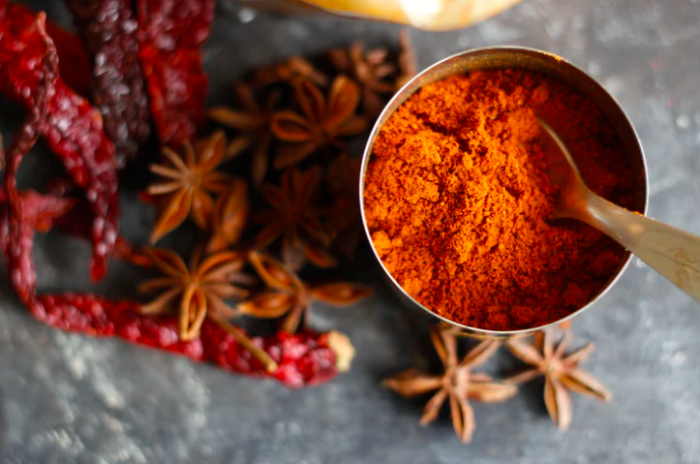I grew up in an Indian home where my mother was religious and prayed daily.
Her prayers included gratitude for the food we ate and offerings to the deities. My dad taught me to practice my faith the way I saw fit and what felt truest to me. He always maintained that humanity was above it all. No religion or God ever wanted us to hurt other people in their name. That sat with me. I liked the idea of bowing my head down to a deity because it felt humbling and grounding.
I also liked showing up for people and their needs. And when the foodie in me discovered that there were Gods associated with food who both protected and nourished us, my heart lit up.
Both my parents taught us to serve only as much as we could eat and finish comfortably. “Don’t waste food; you are disrespecting ‘Bhagwaan,’” (Gods in Hindi) was what we were brought up to believe. This wasn’t just because millions of people went hungry every day but also because food is considered sacred in the Indian culture. It’s medicinal, and it is considered a source of nourishment. Food brings communities together. It can aid in mending broken hearts. Food can heal our bodies and help us tell stories. Foods tantalize your taste buds, but food also provides you with nutrition.
Anyway, because of my love for food and Vedic teachings, I started to pray to Lord Ganesha and Goddess Annapurna. Ganesha, the Elephant God who is the remover of obstacles in Hinduism, also loves food. Annapurna is considered the goddess of food and the kitchen. Her name is a combination of two words—”Anna” meaning food and “purna” meaning “filled completely.” I have a small statue of hers in our kitchen, blessing us and the food we eat.
My mother would use a variety of spices in her cooking. She also changed what spices she used according to the season. Lots of fennel seeds, cumin seeds, and cilantro over summer, and more mustard seeds in winter. Homemade Ayurvedic remedies were readily available in her kitchen. Anything related to digestion almost always had ginger in it. A sore throat and cough called for black pepper-based concoctions. Gas and bloating led to usage of heeng and ajwain.
Turmeric won the vote for anti-inflammatory preparations. She would use a pinch of turmeric, but not in every dish. Let me break a myth for you: eating turmeric in excess isn’t the wisest choice. Also, choose to cook with spices instead of eating them in tablet form—it helps with better absorption.
When Ayurveda became the guiding principle of my diet and lifestyle, I finally understood how every meal offers an opportunity to build a better relationship with our body and mind.
Spices influence the foods we eat. And food impacts our gut, our mood, our emotions, and our overall well-being. It is also believed that food can be not only medicinal but also preemptive in maintaining the body’s immunity to disease…if we eat correctly.
Ayurveda teaches us that the spice cabinet is our first access to the apothecary. It can turn our pantry into a holistic medicine cabinet. Spices make food taste delicious, sure. But did you know that adding the right spices turns food into medicine? Spices are packed with healing power and can be potent in their effects. One of the reasons spices are revered in Ayurveda is because most spices kindle our agni (digestive fire), which enhances digestion. Spices also help remove accumulated ama (toxins).
Ayurveda reminds us that proper digestion and elimination are critical for optimal health. Everything we eat will either become the tissues of the body or ama, and the determining factor is the strength of our agni.
When we don’t digest food well, it creates a kind of slimy sludge in the gut. Some of us will have reactions like gas and bloating (Vata). Others will battle heartburn, acid reflux, or diarrhea (Pitta). A few might experience sluggish digestion and the feeling of heaviness (Kapha). Spices help to regulate agni, and thus help to ensure that we properly digest the foods that we eat. So, use them liberally in your cooking!
“Because we cannot scrub our inner body we need to learn a few skills to help cleanse our tissues, organs, and mind. This is the art of Ayurveda.” ~ Sebastian Pole
According to Ayurveda, at this time of the year and season, Kapha is more prevalent in our bodies. Kapha is one of the Ayurvedic doshas (constitutions), and its elemental makeup consists of water and earth. Late winter to early spring is considered Kapha season in Ayurveda. If you are feeling slow, lethargic, sluggish, unmotivated, dull, you might be experiencing Kapha imbalance. If you feel congested and there is phlegm/mucus, that’s also a sign of imbalanced Kapha.
Ayurvedic diet and lifestyle modifications are one way to help with that. Knowing how to use spices to support your digestion and bring balance to a meal will make it easy to feel healthy in your body and mind.
Many of the people I have worked with grew up eating bland food. As a result, their digestion became quite messed up. Ayurveda teaches us that bland food, much like raw foods, is hard to digest. Adding spice doesn’t translate into eating spicy foods where you burn your gut and tongue. It means enhancing the taste, quality, property, and aroma of the foods by adding optimal spices.
For every dosha and season, Ayurveda recommends different spices. These are colorful and flavorful ingredients designed for healing, building energy, providing immune support, improving gut health, and longevity.
Ayurveda can return us to balance, health, and vital well-being. Are you ready to open a jar of any spice that speaks to you and soak in the aroma? Spices give us the opportunity to engage all of our senses—not just taste. Look at the colors. The vibrancy. Notice how that makes you feel. Observe what it does to all of your senses.
Enjoy delicious spices and know that you’re giving your digestive fire an important boost! Stay tuned for what tips you should follow to keep your Kapha in balance in my next article.
~
If you’d like to improve your overall well-being, you can work with Sweta here.












Read 2 comments and reply